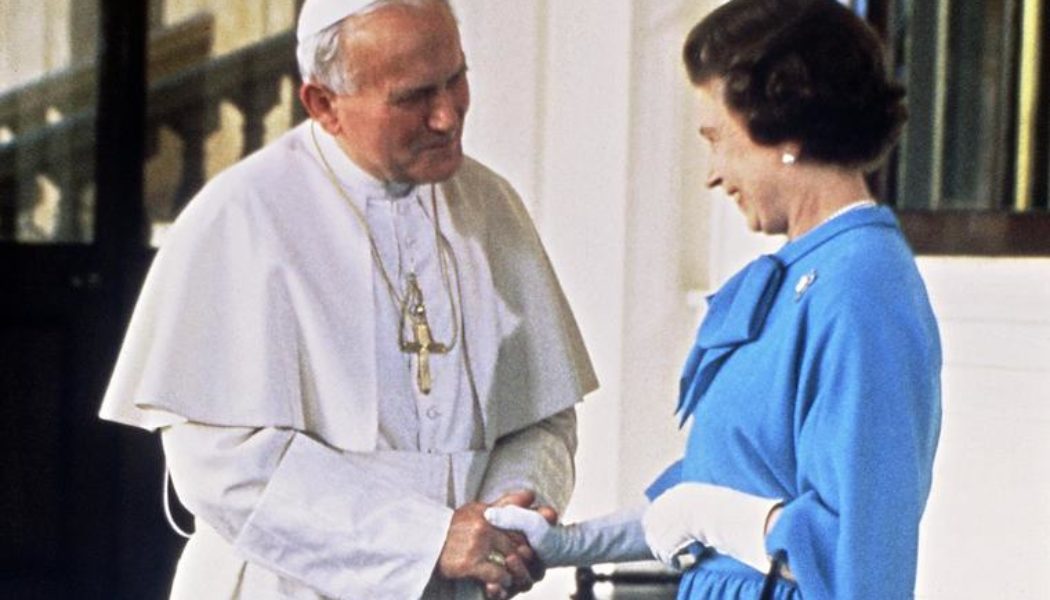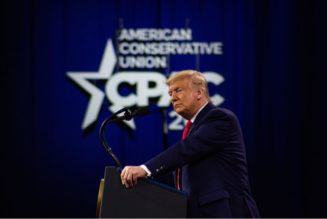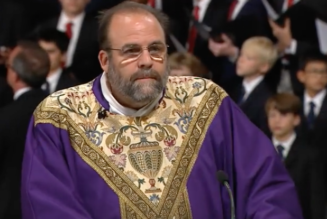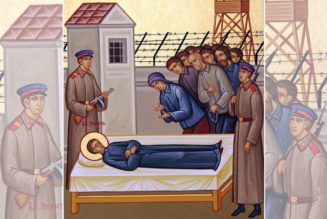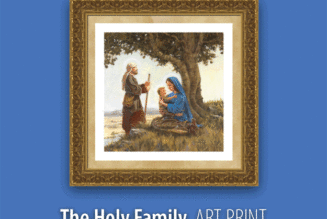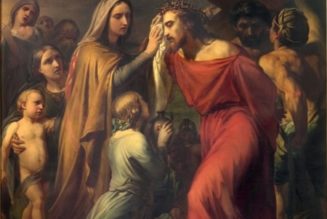
In 2022, the Church in Britain marks an important milestone in its long history: This May, it will be 40 years since the first visit of a pope to Britain.
And it almost didn’t happen.
There had been months of preparation, much debate and discussion in the media, elaborate rehearsals by choirs and cathedrals and Catholic organizations, the hiring of massive venues, including London’s famous Wembley Stadium — and then the Falklands war broke out, and the whole idea of a papal visit was called into question.
Most people in Britain knew little or nothing about the Falkland Islands, a small British colony in the South Atlantic. In April 1982, Argentinian forces invaded the Falklands, swept the small British garrison aside, and announced that the islands were now in Argentinian control. Britain responded by sending a Royal Navy task force, and effectively the British were at war.
As part of the anniversary, I have been dipping into archives and discovering the inside story of the emergency meetings and messages that went back and forth between Britain and Rome as the crisis deepened and the papal visit was at risk of being abandoned. There must have been a great deal of prayer. Pope John Paul II, of course, led the prayers for peace, and British and Argentinian bishops were summoned to Rome, where he celebrated a Mass with them all. And then came the climax of the last-minute rescue operation to save the situation: He flew to Argentina for a swiftly arranged papal visit, before going on to Britain.
It was clear throughout that the Pope was not only neutral but that he was vigorously promoting peace: This was his consistent message, and it never wavered. On this basis, he was able to fly to London’s Gatwick Airport, where, as planned in detail over the previous months, a large crowd, drawn from Catholic parishes across Surrey and Sussex, had gathered to greet him. I was among that crowd. I remember the early-morning start and the excitement as we all arrived in a chartered bus, and then the wait at the airport, where the Duke of Norfolk — by long-established tradition Britain’s senior Catholic layman — greeted the Pope at the airport steps.
This was not, it was emphasized, an official visit. This was a pastoral visit of the Pope to Britain’s Catholics. So no formal representative of the queen was at the airport, and there were no government officials. There was music, and we sang a welcoming hymn. Then there were speeches — and the history was made. The Pope summed it up when he proclaimed, “For the first time in history, a Bishop of Rome sets foot on English soil.”
In its own way, the tragedy of the Falklands War — more than 800 men, British and Argentinian, would eventually lose their lives in the fighting — helped to create a situation where old antagonisms dating back to the Reformation in Britain seemed to dwindle away. The papal visit became a true opportunity for a message of peace and goodwill, with anti-Catholicism of the old sort somehow at variance with a general recognition of the needs of the modern era. The whole visit had, in any case, been planned with ecumenical goodwill in mind, and there were some powerful moments, notably at Canterbury Cathedral, where the Pope prayed with Anglicans at the site of the martyrdom of St. Thomas Becket.
And, yes, he did meet the queen — a courtesy visit, with tea at Buckingham Palace — with evident goodwill on both sides. Queen Elizabeth was wearing, I remember, a blue dress, and they were smiling and chatting as they emerged from the palace after tea. Postcards of the scene quickly became popular — I’ve still got mine.
The papal pilgrimage had the seven sacraments as its theme. At a packed Mass at Westminster Cathedral, the Pope baptized seven candidates of various ages, and then, after crossing the Thames at Lambeth Bridge, he arrived at St. George’s Cathedral, Southwark, which had been cleared of pews and filled with stretchers and wheelchairs bearing sick and disabled people from across Britain, and he administered the sacrament of the sick. And so it went on, across England and Wales and Scotland, with a penitential service, first Holy Communions, confirmations, ordinations and renewal of marriage vows. Vast crowds came, powerful moments of prayer experienced.
It was an unforgettable time. Looking back through the archives, something of the joy and excitement is still evident. So, too, are the changes since those days — the letters are typewritten (remember typewriters?) and there is just one reference to “a computer being installed” as a great innovation at one venue to store relevant information. Color photography relied entirely on film, paper and chemicals (some of the pictures have that curious greenish tinge that I remember well). Fashions have, of course, changed: Ladies wore dresses, and there were even quite a lot of hats.
What did the papal visit achieve? A great deal. With its massive television coverage, it opened up an authentic vision of Catholic worship: from how Catholics pray to the centrality of the Eucharist. People saw what a baptism is and what is meant by the anointing of the sick. They saw the Pope as a bishop, a man in a white robe preaching about peace and the importance of family life and family prayer. Old notions of the Pope as a sinister foreign figure intent on imposing some sort of political rule were recognized as propaganda from a vanished era.
And that 1982 visit was followed, in the next century, by an official state visit by Pope Benedict XVI, where among much else, he addressed Parliament with a magnificent setting out of the respective roles of Church and state centered on a ringing call for true religious freedom. He led young people in a massive unforgettable night vigil of adoration of the Blessed Sacrament in London’s Hyde Park, and he beatified John Henry Newman in a glorious Mass at Cofton Park on the outskirts of Birmingham.
The year 2022 sees another major milestone in Britain’s story: the platinum jubilee of Queen Elizabeth II. She has always been clear in her commitment to the Christian faith and spoken of it as central to her life and service.
So much has changed in the 70 years of her reign. While there has been progress in fields that include health and general prosperity, there is also much that is cause for great sadness: Britain is a country with too much violent crime, many unhappy young people, a drug crisis, a worrying suicide rate, and a collapse in a general understanding of many basic moral values, including the value of human life itself.
But the Christian message is still on offer and is the message that holds the hope of renewal; and in a country with a long history, and a tradition of marking anniversaries and jubilees, 2022 brings scope for missionary activity on a new scale. We must pray the opportunity is taken up. A reminder of that historic papal visit four decades ago is part of that.
Join Our Telegram Group : Salvation & Prosperity
